Here are a few things I am going to try not to do (but will probably end up doing anyway) while reviewing HONEY, the sophomore album from Nashville-by-way-of-NYC singer-songwriter Samia:
- I am going to try not to play the “I liked it before it was cool” card. Sure, a fan who fell in love at first listen with your favorite artist after finding them on a playlist that was updated yesterday won’t have the same relationship to that artist as someone who saw them perform to an audience of ten people in a backyard before their debut album was even announced. But who’s to say that the former’s connection to the music can’t be as profound as the latter’s? If anything, it’s a testament to said artist’s ability to make music that resonates with a variety of people across a broad span of time. All this being said—as someone who’s been a Samia fan ever since I heard “Someone Tell The Boys” in early 2018, as someone who spent my actual 21st birthday dancing to “21,” as someone who knows that Father John Misty himself put “The Night Josh Tillman Listened To My Song” on a playlist—it’s safe to say that I’ve been personally invested in Samia’s career trajectory. I’m not trying to claim some kind of indie cred, or gatekeep Samia’s music so it doesn’t reach the quote-unquote “wrong audience,” or even argue that I’ve stuck around long enough to be entitled to some kind of say in what shape her creative output should take. I’m only trying to articulate the way her music feels like it has grown with me, and vice versa—and I’m far from alone in having Samia’s songs serve as the soundtrack to my own haphazard stumbling through young adulthood. When Samia first started releasing music, we were both in college, wading through the twilight of our teen years and staring down the barrel of our twenties. I think that what I’m trying to say in the least parasocially weird way is that listening to Samia’s back catalog often feels like catching up with an old friend. Listening to HONEY had me wondering: What happens after you grow up with someone?
- I am going to try not to measure Samia’s sophomore album against her past releases, and will instead do my best to evaluate it as a standalone musical statement. I recognize that pure impartiality is an unattainable goal when writing about something as subjective as music, and that it’s impossible to disentangle our own personal histories from our engagement with any work of art—and thank God for that. Can you imagine how bland and monotonous interaction with art would be if it wasn’t constantly weaving its way into a myriad of different people’s different stories, recreating itself each time it finds a new person to make feel something? When Samia released her debut album THE BABY, I had just graduated college during the early months of the pandemic after completing my final semester remotely. I was back in my childhood home, unemployed, uninspired, and trying to navigate adulthood in a world that I felt increasingly ill-prepared for. I regarded my recent past self as smug and full of shit—she had no idea what she was in for. THE BABY encapsulated all the contradictions I was struggling to reconcile. It existed on a sliding scale of irreverence to sincerity, and a single turn of phrase could shift the needle from one end to the other. One moment it would be spilling out of itself with confidence and the next it would be struggling to clean up the mess caused by its posturing and false bravado. Sometimes it handed out forgiveness too easily, other times it clung tightly to its own resentment. Samia’s lyrical meditations on desire, self-perception, and (im)maturity, were thoughtful and emotionally stirring, but this never impeded her impeccable comedic timing or her ability to know her way around a catchy hook. It was the album that found me at the perfect time
—
“Pool,” the first track on THE BABY, opened with a sample of Samia’s late grandmother singing to her in Lebanese Arabic. The sample returns on HONEY, this time as the outro on “To Me It Was.” Both tracks offer rose-tinted recaps of nights out, making Samia’s grandmother’s song a sort of leitmotif symbolizing nostalgia and good (though not always accurate) memories. When this sample shows up on Samia’s sophomore LP, it follows a back-porch slow-burner steeped in Americana aesthetics—the final verse references songs by Def Leppard and Carrie Underwood, as well as the 2016 film AMERICAN HONEY. It’s a high point of her discography thus far, with Samia putting her own spin on the clever, narrative scene-sketching of songwriters like Craig Finn and Jake Ewald (“To Me It Was” could easily be a BIRDIE B-side). Over a dreamy slide guitar, she delivers some of her most empathetic and sardonic observations, often in the same breath: “Never enough if you’re always too much / A couple bald men fighting over a brush / So you were bullied in high school and you’re looking for payback / Like finding a needle in a stack of needles.” Equal parts witty and heartfelt, it makes you want to spend the ride home from the party talking shit with Samia and letting her reassure you that you didn’t say anything weird (she promises).
This alt-country sensibility suits Samia extraordinarily well, allowing her to play to her strengths as a songwriter and a vocalist. The sparkling should-have-been single “Charm You” captures both the ecstasy of finally being able to let your guard down in front of the person you love, and the lingering fear that you’ve somehow tricked or manipulated them into loving you. There’s an undeniable sweetness with which she sings “Makin’ water boogie to a Kesha song,” a line that might come off as corny and saccharine if she didn’t deliver it with such unabashed sincerity, letting her delicate vocals shimmer like late afternoon sunlight on the surface of a lake.
The similarly iridescent “Amelia” feels to HONEY what “Winnebago” was to THE BABY. Both fall in the penultimate spot of their respective tracklists and both feature splashy production that lifts Samia’s voice to its most luminous heights. Though “Amelia” takes a poppier, more radio-friendly direction, its danceability doesn’t come at the expense of its quirks, but makes them all the more refreshing and endearing.“Oh my god, there’s nothing quite like doing what you came to do” she exclaims, and you can’t help but agree.
“Charm You,” “Amelia,” and the title track all have me questioning the decision to release HONEY in the dead of winter when it so clearly wants to be a summer album. The latter’s bouncy, pop-country charisma is reminiscent of early-career Taylor Swift highlights—sometimes to its credit, sometimes to a fault (looking at you, lines about wearing a little black dress and wanting to be a mermaid). Still, it’s catchy and charming enough to make you want to join Samia for a couple beers and a Porches set at Baby’s All Right.
The highs of “Honey” are a jarring tonal shift from the crushing, diary entry-meets-police report lyricism of “Breathing Song,” which directly precedes it in the tracklist. The distortion at the final chorus is fittingly haunting, but the overly slick production on the rest of the track homogenizes Samia’s voice rather than showcasing its elasticity, pulling focus from what is otherwise one of her most compelling performances. Parts of the Rostam-produced “Mad At Me,” suffer from a similar flattening. It’s a shame, since “Mad At Me” has the potential to be her big mainstream crossover hit, but the washed-out vocal effects leave her sounding misleadingly generic. The ASMR-tinged “Nanana” is by far the worst offender, with Samia’s vocals treading in the shallow end and her lyrics buried in drowsy production. Closer “Dream Song” achieves this quiet intimacy in a much more effective way, contrasting hushed vocals and soft, fingerpicked acoustic guitars on the verses with an apocalyptic yet ethereal chorus. When Samia croons, “There are six minutes of brain activity after the body’s dead,” she makes it sound like a lullaby.
Samia thrives with production choices that put her voice front and center, like on the heartwrenching ballad “Pink Balloon.” She juxtaposes the mundane with the deeply disturbing and delivers both with unflinching matter-of-factness—“Your mom keeps threatening suicide on holidays / Your sister’s in LA making dinner with fresh produce”—before her lyricism gradually grows more metaphorical, in a way that lets her dance around what’s unsaid: “When they can see it in your eyes / That you’re about to hit the sky / I’m hanging on the line that ties me to your pink balloon / How am I supposed to wanna hold it anymore?” “Sea Lions” is implied to be a sort of companion song. The two were released as singles together and have sequential, stylistically-linked music videos, though puzzlingly, they’re separated in the tracklist by “Mad At Me.” The most sonically interesting passage comes around the halfway point: Samia asks, “Why is your phone going to voicemail?” as the tempo switches, and she spends the outro vocalizing ominously over a whirring, atmospheric beat. The track ends with a disembodied robot voice reciting a list of cryptic free-associated words and phrases, as though it’s gaining consciousness in real time. With the exception of some gut-punch one-liners (“We’ll never be like those lucky posers”), the lyrics on “Sea Lions” tend to skew more straightforward—a common occurrence throughout HONEY.
While THE BABY often dealt with Samia’s fear of confrontation, some of the most memorable moments on her follow-up album are ones in which she’s alarmingly direct about her conflicts with others—asking “Do you ever wish you weren’t a coward?” with an angelic lilt on “Mad At Me,” or deadpanning “I hope you marry the girl from your hometown / and I’ll fucking kill her / and I’ll fucking freak out” over a church organ on the stark opener, “Kill Her Freak Out.” Sometimes the hyperspecific lyricism on HONEY works in Samia’s favor, as though she’s letting you in on a secret. But after a while the excessive namedrops and beat-by-beat descriptions of events get tedious, making it seem more like she’s telling you about a party you weren’t invited to, or trying to explain an inside joke. Specificity can loop back around and become counterintuitively generic when it’s overused.
Samia’s versatility is perhaps her greatest strength and her Achilles heel. The problem with versatility is that there’s always the danger of spreading oneself too thin and coming up with the lowest common denominator. HONEY has some great songs, but as a sum of its parts, it lacks cohesion. Instead of committing to a single unified style that encompasses her extensive musical abilities, Samia inches toward multiple promising paths without following any particular one in its entirety. Samia could reinvent herself as a country diva on her third LP (think Kacey Musgraves’ GOLDEN HOUR or Angel Olsen’s BIG TIME). She could pivot to heartland rock like Camp Cope and her former tourmates Wild Pink both did in 2022. She could embrace her more ethereal inclinations and make a stunning Mazzy Star-meets-Alvvays dreampop record. She could let fuzzy riffing guitars take the lead, joining the ranks of bands like feeble little horse, Wednesday, and Momma in the current ‘90s alt-rock revival. She could become a beloved cult popstar á la Carly Rae Jepsen, making hits that are as thoughtful as they are fun. Above all else, HONEY is a testament to Samia’s potential, a window into everything that she could become.


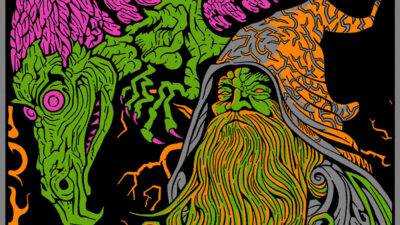

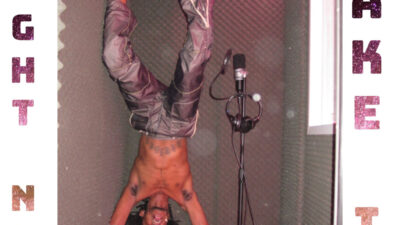

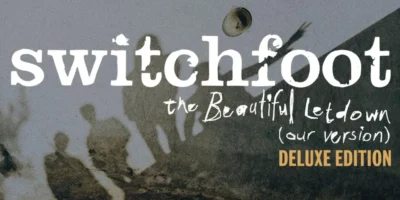



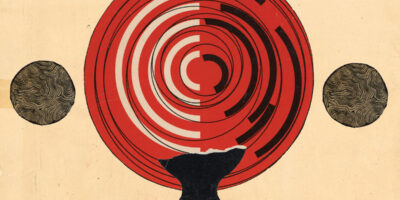




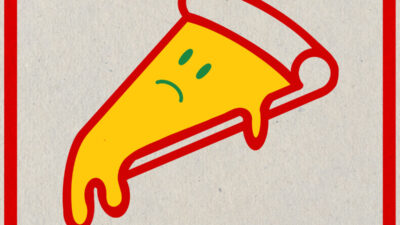
Comments